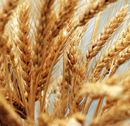Agriculture and food are diverse sectors that are facing rapid change. From climate change to shifting demographics, from new technologies to new social movements, our food systems are in flux.
Amidst this change, we cannot forget that food is a primary need, it makes up the world's largest industry and it plays a central role in culture and society. Given the important role that food plays in our lives, and the changes facing our food systems, it makes a lot of sense to study food.
As a discipline, food studies is centrally concerned with what, why and how we eat. It is an emerging discipline and more and more people are analysing what, how and why we eat because food offers us a lens through which to study and ground important questions.
At the UOC, we approach the study of food through a study of systems. Food systems are the organization of the production, processing, distribution, selection and consumption of food. This framework allows us to expand the scope of our programme to include analyses of issues linked to culture, economy, history, land, politics, power, processing, production and regulation. In turn, our students are better prepared to deal with sector-related issues in a more holistic fashion.
Our programmes prepare people to meet the demand for knowledgeable and well-trained food systems leaders and analysts by fostering practical and critical learning with an international perspective. From a solid methodological and theoretical grounding, our students possess the critical tools necessary to tackle some of the most pressing issues concerning the organization and regulation of food systems and, correspondingly, our world.

